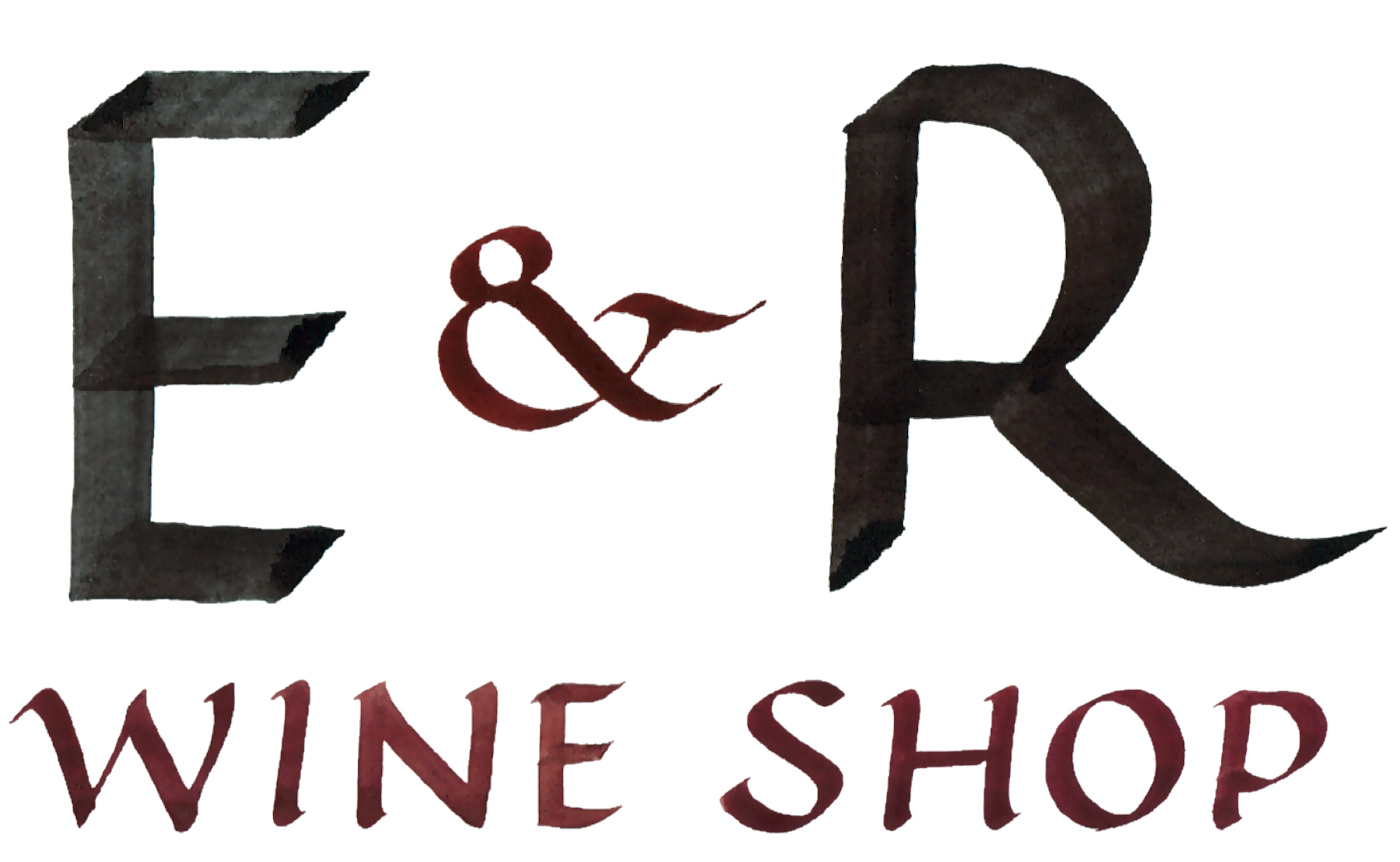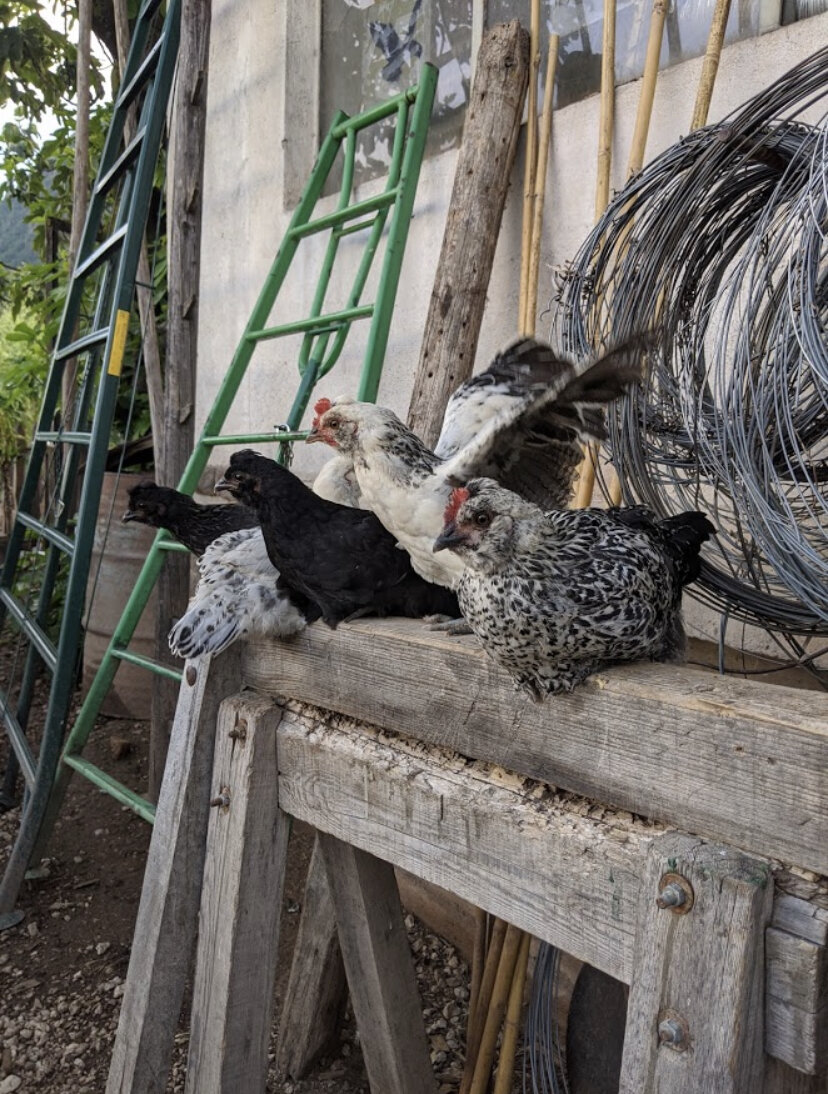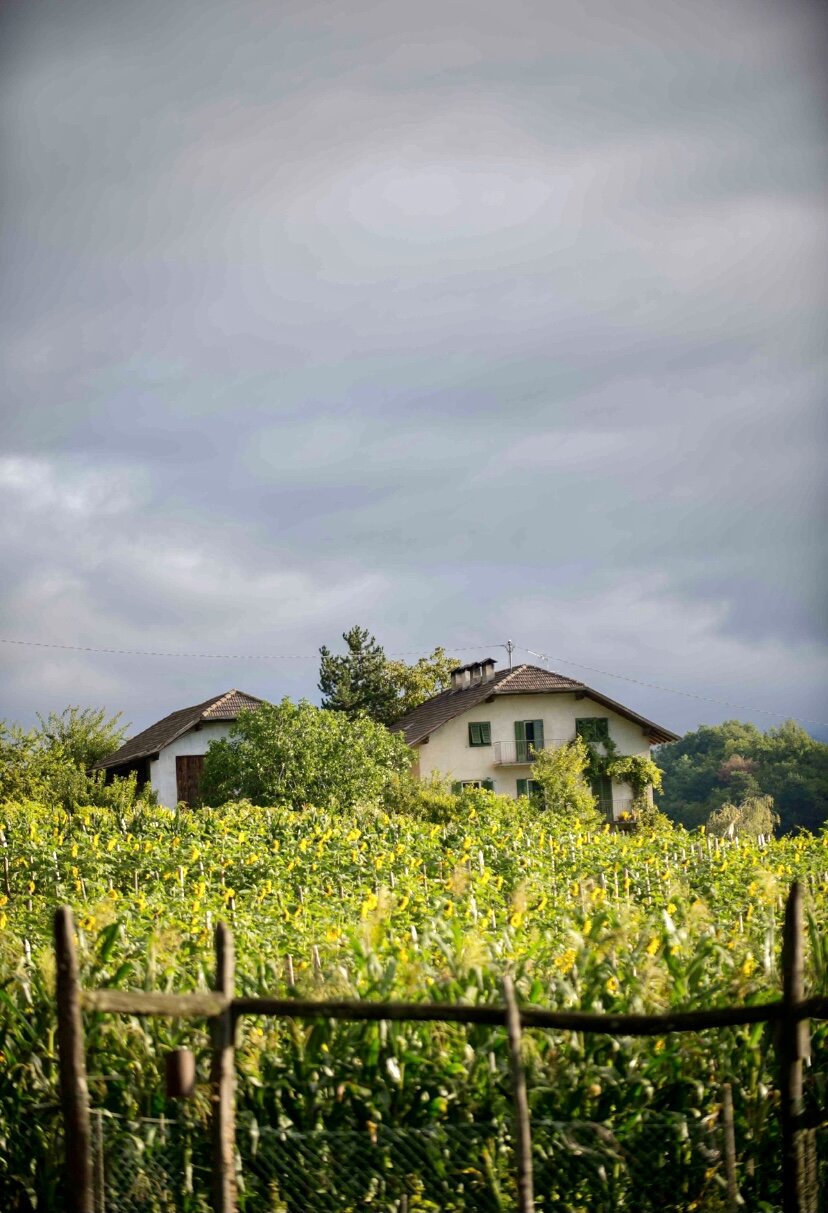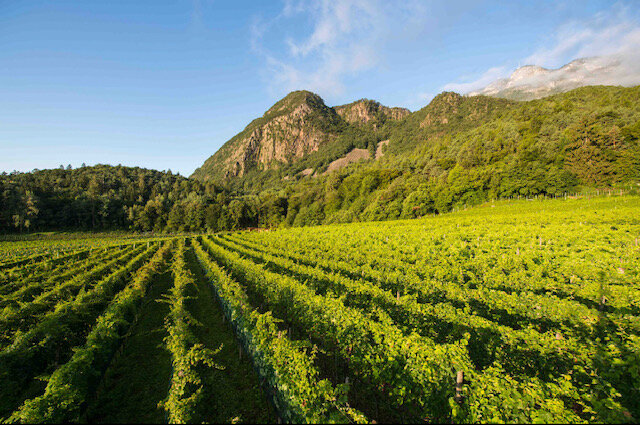Thomas Niedermayr - Alto-Adige, Italy
PIWI inspection time - Thomas Niedermayr.
“Our wines express passion, origin, the history of our farm and our historic wine-growing area.
They are lively, with a lot of complexity, elegance and character. Always a signature: Thomas Niedermayr”
Cantina Colterenzio
Manni Nossing
Gumphof
Weingut Taschlerhof
Kuen Hof
Franz Gojer
Weingut Ebner
Weingut Koefererhof
Andi Solva
Yes: gloriously - the Alpine region of Alto-Adige overflows in wine riches. For many of our twenty-one years, we’ve worked directly with some five dozen wines from nine different producers (list above) of this diverse region - one of Italy’s most unsung.
So, why bring in wines from a tenth Alto-Adige winemaker?
Because these wines from Thomas Niedermayr are unique, wondrous and compelling.
Mitterberg IGT “Abendrot 06” 2016 vintage.
~ ORGANIC AND NATURAL ~
We had the opportunity to meet and taste with Thomas Niedermayr in the Fall of 2019 in of all places, Los Angeles - just a few hours west of his winery south of Bolzano (Italy).
Our crew fell in love with his work and wines and made plans to meet him in his vineyard this past Spring. That did not pan out.
In Italy’s Alps (Dolomiti) is where you will find Thomas Niedermayr’s winery on wild, green slopes near Eppan (Appiano) in the prime-time wine heart of Alto-Adige. His family’s property, the “Hof Gandberg” houses all the parts of a fully operating farm from vines to chickens to grains, fruits and vegetables. Organic principles have ruled the roost (along with the chickens) since their day one and the concept extends itself deep into the winemaking.
More or less taking over from his father Rudolf (we know how that kind thing goes) years ago, the Niedermayr vines and winemaking have been wholly organic for over thirty years. Rudolf instituted organic farming in the mid-eighties, just about when Thomas was born.
Having grown up on a non-interventionist, self-sustaining farm (now since in 1999), Thomas’s Bioweingut Niedermayr now works exclusively with PIWI grapes.
PIWI (from the German “Pilzwiderstandsfähig Reben’) are grapes crossed between European varietals and fungus resistant varietals from North America and other places. For these grapes, no chemicals or pesticides are ever used (or needed), not even organically approved uses of copper or sulphur are necessary anywhere in the vineyards or the winemaking process. Virtually all the work from terroir to bottle is done by hand. Their farm has been a member of Bioland vested in organic activity (https://www.bioland.de/verbraucher ) since 1991. Thomas and his family incorporate Bioland principles to all their farm work from grapes to fruit, vegetables, animals, land and living.
Thomas making out the family tree(s).
Though not so well known at large here in America, PIWI grapes are farmed and produce wines from hundreds of winemakers in Europe. There is a growing stronghold in Austria, Germany and parts of Northern Italy. This in no fad, taste and you’ll agree!
We asked Thomas why he chooses to work with PIWI grapes (Souvignier Gris, Bronner, Solaris) and he told us:
- Our varieties provide us with the most healthy, tasty grapes for excellent wines.
- They enable a balanced ecosystem between humans, animals, plants and soil.
- They support diversity in flora and fauna.
- They need no chemistry and no fining.
Grapes used in this offer:
Souvignier Gris
Parent grapes - Cabernet Sauvignon x Bronner
Bronner
Parent grapes - Merzling x GM 6493
(Merzling - Pinot Gris, Riesling, Seyve-Villard)
(GM 6493 - Saperavi severnyi & Muscat Ottonel)
Solaris
Parent grapes - Merzling x GM 6494
(GM 6494 Saperavi severnyi & St. Laurent)
For more details on PIWI grapes and producers:
https://piwi-international.de/en/about-piwi/piwi-grapes/
Filled with life.
“Anyone specializing in natural wine production has to accompany the wine all the way. Only so doing can you influence the quality of the resulting wine at every stage in the process. Only so doing can you become one with its temperament and guarantee absolute purity. After all, nature is the highest form of quality.” - Thomas Niedermayr
The vineyards for the winery’s small production have been certified organic since back in 1990. All the wines are unfiltered and unfined and are produced in stainless steel and/or older 500 liter wood barrels.
We asked Thomas what he looks to accomplish and he said “To make genuine, authentic wines with depth, elegance, complexity and with a long-lasting finish. Also to reflect the history of the climate and soil of the region, and to help people to feel the artisanship and honest signature of the winemaker.”
We are certain his delicious wines achieve those things, and we are sure wine lovers will become fans as we were from our first sips in L.A. in 2019, to all the bottles we’ve already opened and consumed since they arrived here the week before last.
Cheers!
OUR SPECIAL INTRODUCTORY OFFER:
THROUGH FEBRUARY 6
It’s a challenge offering unfamiliar wines! A new winemaker, a less well known region, unknown PIWI grapes; a “natural” wine…
So we are doing a special intro offer to have you feel comfortable trying them out!
The wines are great.
As the Bard wrote “a rose by any other name would smell as sweet.”
Click on each wine for more detail.
Mitterberg Bianco IGT
”Souvignier Gris 2018”
From magenta colored grapes (its Cabernet heritage), a savory, tasty, light-golden hued wine featuring a long, plush, juicy finish. (We called it “tricky viscous” due it its body and structure: you’ll see/taste!) The 2018 Souvignier Gris is a dynamic white with fresh floral edges, pollen-notes and fine salinity. A flinty wine of taut acidity which is influenced by nothing beyond the grape and the ground. While we loved it on day one, we found it beautiful on days two and three. It may well be wonderful even longer but we came up short on will power to hold off. (300 cases made)
Regular price after February 6 - $34.00
Special introductory price
through February 6 - $28.00 (no further discount)
Vigneti delle Dolomiti IGT
“Solaris 14” 2017
Thomas says his Solaris is “spicy, delightful and impetuous, with ripe stone fruits and a fresh austerity.” Our team picked up on peppercorn, spiced citrus, cardamon and orange creamsicle (they still make those?), and adding “ultra fresh, mouthwatering, highly sip-able”, - a come back for more kind of wine. The vines here rise up to 700 meters (3000 feet) lending the robust grape the classic high altitude purity and freshness one loves in these wines. We appreciate Thomas writing “loamy, calcareous, partly very barren, skeleton-rich, deep soil with a high amount of white dolomite rock.” In the old days, were we hosting a tasting with you, we’d just say “friends, this is a cool wine!”
Regular price after February 6 - $34.00
Special introductory price
through February 6 - $28.00 (no further discount)
Vigneti delle Dolomiti IGT
”Bronner” 2018
Even though Bronner is a PIWI grape, its origin goes back to 1828. At Hof Gandberg, Bronner is considered a wine for both the Winter and the Summer (seducing at lunch and dinner) as it shares influence of Mediterranean herbs along with with Alpine hay. The sandy, slate-rich soil gives the vines the chance to show off grapes offering a richly colored wine, fleshy and complete. We thought it was hitting its stride best on day two. “Verdicchio-like” a few of us said. Some Italian associates mentioned a tasting kinship to the Kerner grape, though with more broadly weighted impressions on the palate. Around 550 cases produced. 13% alcohol.
Regular price after February 6 - $34.00
Special introductory price
through February 6 - $28.00 (no further discount)
“Sonnrain 99” 2017
Sonnrain, blended from three PIWI grapes (the PIWI-Pioneers as he calls them) is a lighter yellow color fully showing its roots as an unfiltered wine. Sonnrain brims with flavor and life of mountain flowers and stone echoing whites from Burgundy’s Cote de Beaune in France. This white resonates with place in the commitment to being both organic and natural: when one thinks of “mountain freshness” Sonnrain is a strong example. Around the edges you’ll notice mint and sage integrated into its fresh fruit - a wine screaming Alto-Adige on its way down the hatch.
Regular price after February 6 - $37.00
Special introductory price
through February 6 - $31.00 (no further discount)
Mitterberg Bianco IGT
”Abendrot 06” 2016
Abendrot 06 (06- the year the vines were planted), pictured toward the top of this article, is all Souvignier Gris. Thomas writes: “Nose: Aromas of plum, amarena and almond merge with resinous notes and the scent of cinnamon bark. Mouth: This fresh, juicy wine with a velvety tannin structure remains long in the palate and has depth.” Abendrot 06 is a special wine. Our take includes “light salmon colored, toward dense, dark fruit scents, salty citrus, beeswax, super complex, looong, grilled citrus/pineapple, reminiscent of older white burgundy. Supply is rather small.
Regular price after February 6 - $54.00
Special introductory price
through February 6 - $44.00 (no further discount)
(E)









